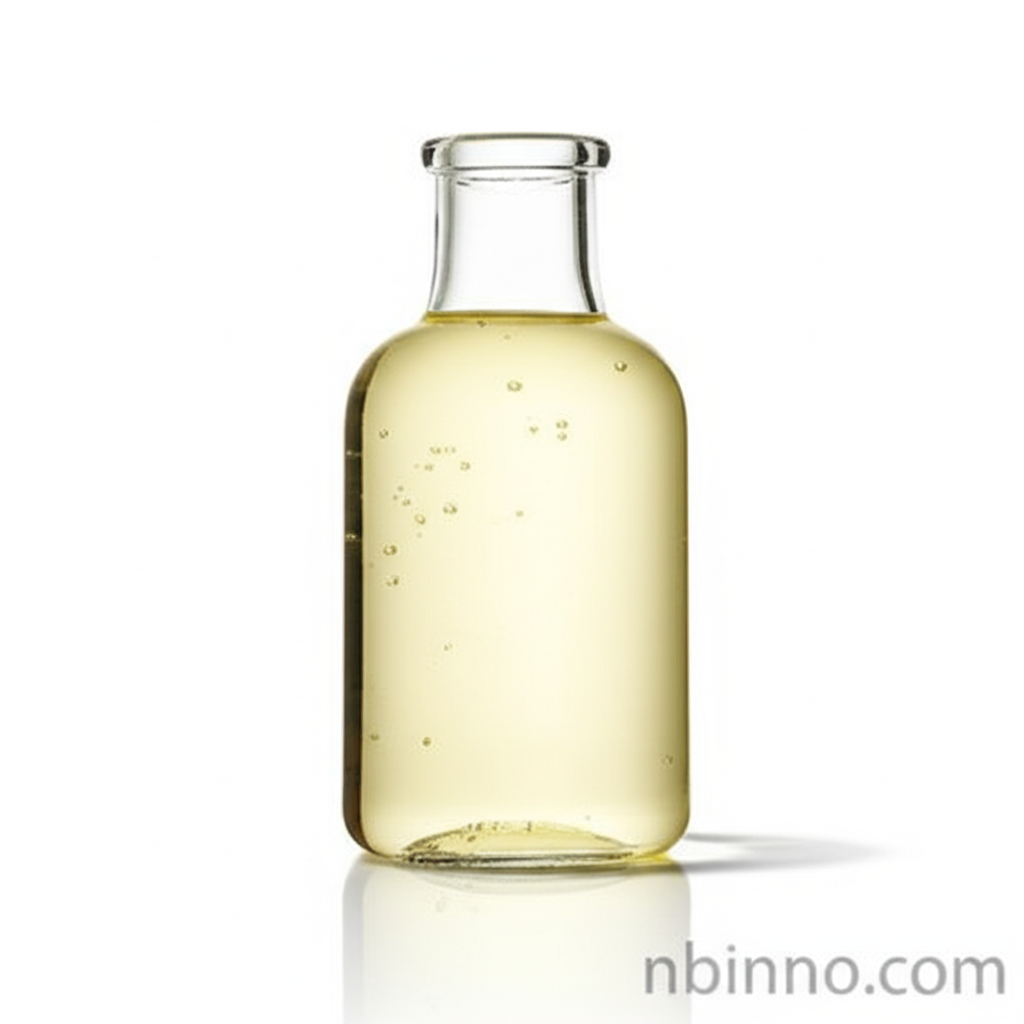Dibutyl Phthalate (DBP): A Versatile Plasticizer for PVC, Coatings, and More
Discover the extensive applications and benefits of Dibutyl Phthalate (DBP), a key plasticizer enhancing flexibility and performance in PVC, coatings, inks, and a wide array of industrial products. Learn about its properties and common uses from a trusted supplier in China.
Get a Quote & SampleProduct Core Value

Dibutyl phthalate
Dibutyl phthalate (DBP) is a crucial plasticizer, highly valued for its ability to impart excellent softness and flexibility to polymers like PVC. As a reliable supplier in China, we offer DBP that also demonstrates strong gelling capabilities and superior stability, flexural resistance, adhesion, and water resistance compared to other plasticizers. Our commitment as a manufacturer in China ensures high-quality DBP for diverse industrial needs.
- As a premier plasticizer for PVC, DBP significantly improves the flexibility and processability of the material, making it ideal for applications requiring a good balance of softness and durability.
- Leveraging DBP as a plasticizer for nitrocellulose coatings provides enhanced gelation and improved overall performance, including excellent stability and water resistance.
- The broad utility of DBP as a plasticizer extends to various resins, including polyvinyl acetate, alkyd resin, ethyl cellulose, neoprene, and nitrile butadiene rubber, offering tailored properties for each.
- Explore the extensive uses of DBP in formulating paints, adhesives, artificial leather, printing inks, and even in niche applications like perfumes and propellants, showcasing its versatility.
Advantages Offered by the Product
Enhanced Flexibility and Softness
DBP is renowned for its ability to make materials like PVC more pliable and softer, which is critical for many plastic applications and contributes to easier processing. This makes it a key component when seeking 'dibutyl phthalate plasticizer for PVC' solutions.
Improved Performance Characteristics
The chemical structure of DBP contributes to superior stability, flexural resistance, adhesion, and water resistance in formulations, enhancing the longevity and performance of finished products.
Versatile Application Range
From industrial coatings and printing inks to consumer goods, DBP's compatibility with a wide range of resins and polymers makes it a go-to chemical for diverse manufacturing needs, aligning with inquiries about 'DBP uses in coatings and inks'.
Key Applications
PVC Products
DBP is a primary plasticizer for PVC, used in floor and wall coverings, furnishings, and automotive interiors, providing essential flexibility and softness. This highlights its role in 'dibutil ftalat PVC plasticizer' applications.
Coatings and Lacquers
Its excellent gelling ability and stability make DBP a valuable additive in nitrocellulose coatings, lacquers, and paints, improving workability and finish.
Printing Inks and Adhesives
DBP contributes to the performance of printing inks and adhesives by improving their plasticity and bonding characteristics, essential for 'buy dibutyl phthalate online' searches related to ink formulations.
Cosmetics and Personal Care
Historically used in products like nail polish, DBP's application in this sector is now more regulated due to health concerns, though its solvent properties remain useful.
